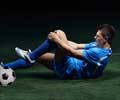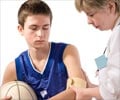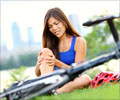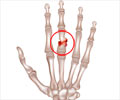
‘Being aware of the injury potential of your sport and proactively seeking ways to prevent such sport injuries is critical.’
Tweet it Now
"Cheerleaders have often trained in poorly equipped facilities - or even outside on the grass - with little if any protective gear," said Beck, who is also a pediatric orthopedic surgeon. "When you consider that they are training to perform towering pyramids and dramatic tumbling sequences, it's not surprising that the sport has a very high injury rate - particularly head and neck injuries." Beck urges all athletes to:
- Prioritize good nutrition and proper hydration. Heat illness and dehydration are concerns at any time but are especially common during intensive summer training camps.
- Stretch, warm up and cool down for both practices and games or competitions.
- Practice and use proper techniques, such as tackling in football; tumbling in gymnastics; or running, jumping and landing in basketball and track events.
In addition, football and soccer players should wear all the recommended safety equipment - especially helmets and pads - and be sure it fits correctly. Cheerleaders and gymnasts are advised to train only in properly equipped facilities featuring recommended safety equipment, including quality tumbling mats. For basketball players and track-and-field competitors, Beck warns of pushing too hard because overuse leads to injury. She also recommends taking time off because rest is an important part of the training cycle. Overtraining can lead to stress fractures and other injuries.
If pain or swelling lasts more than a few days or gets worse, it is time to seek medical care, Beck said.
Advertisement
Source-Newswise














